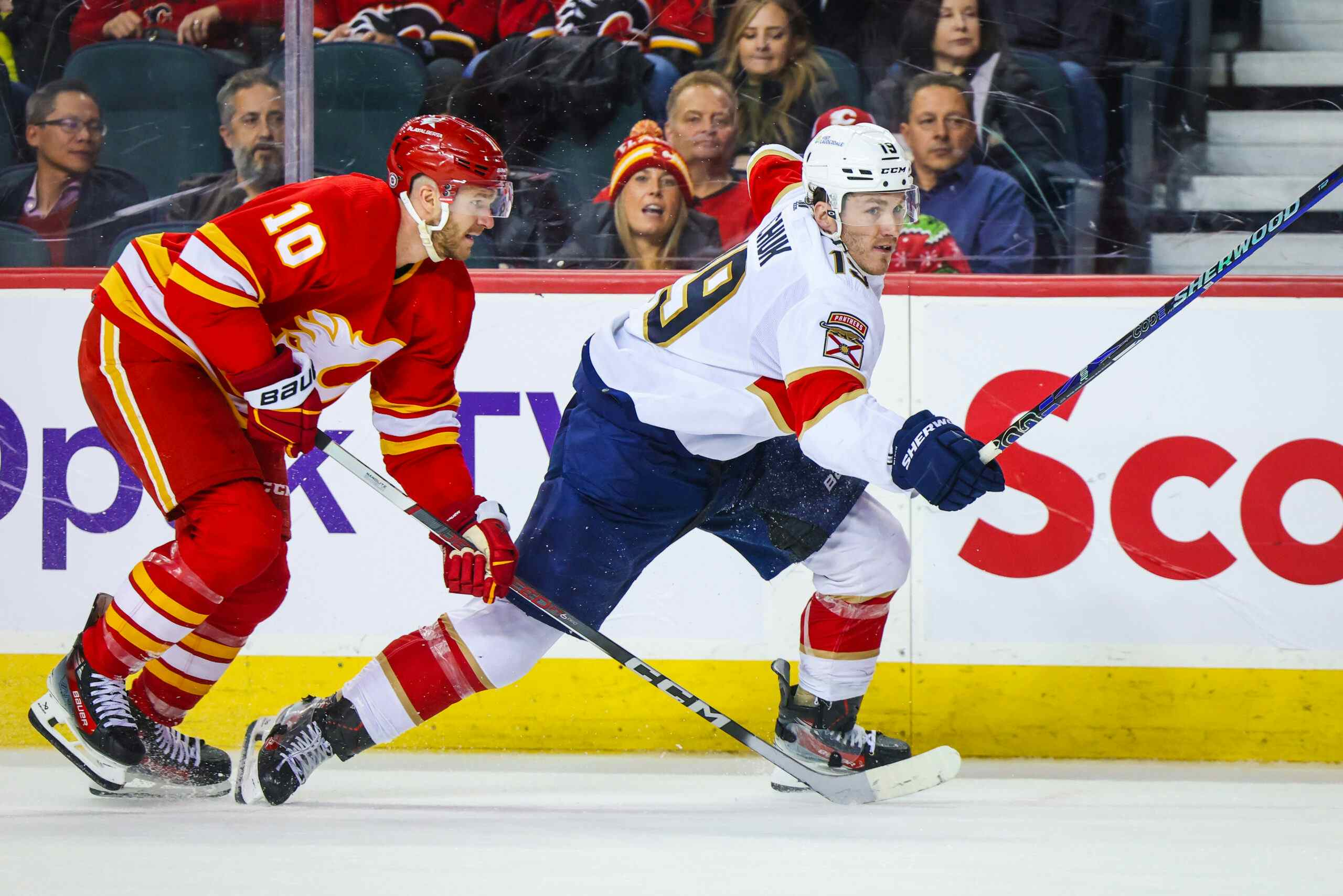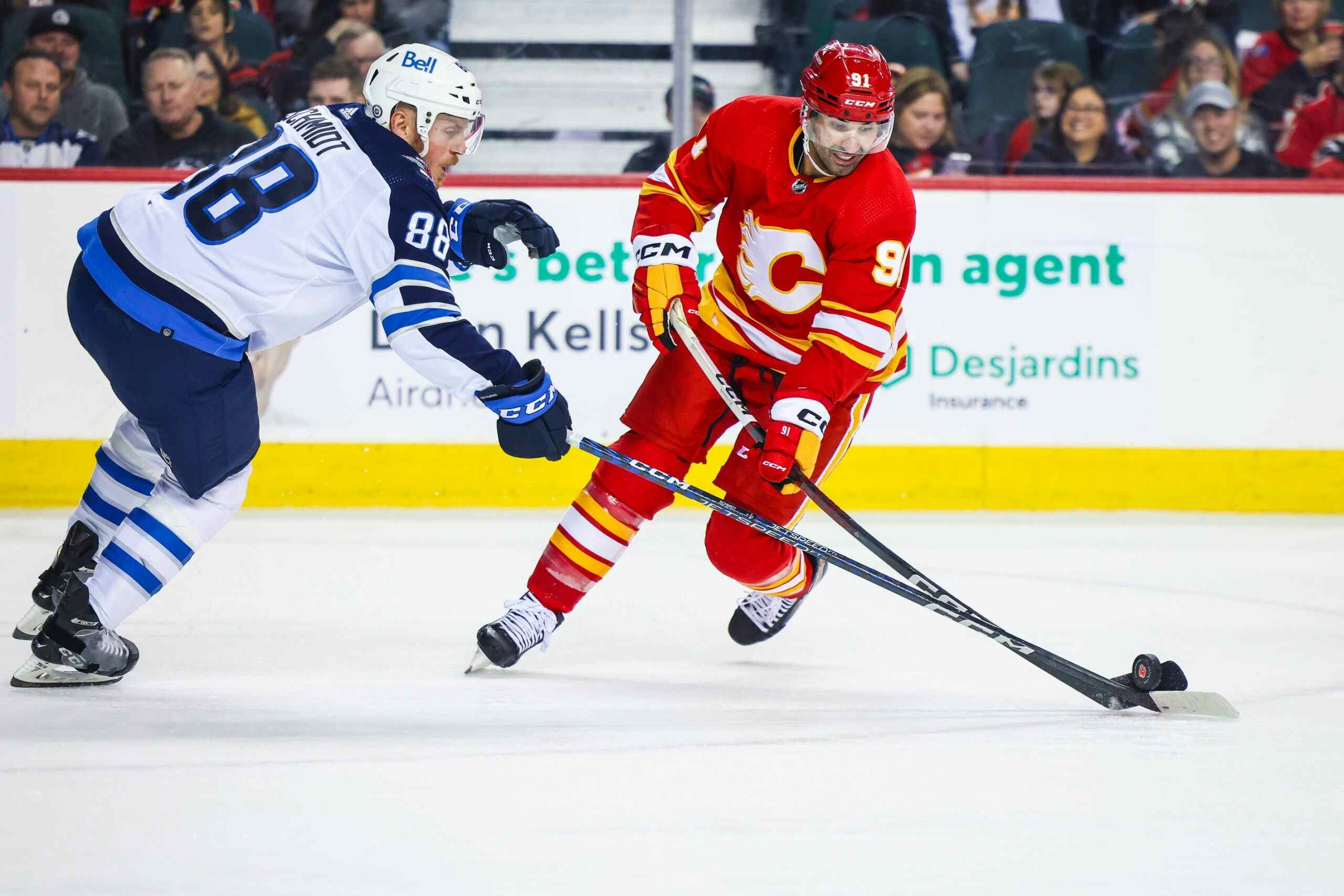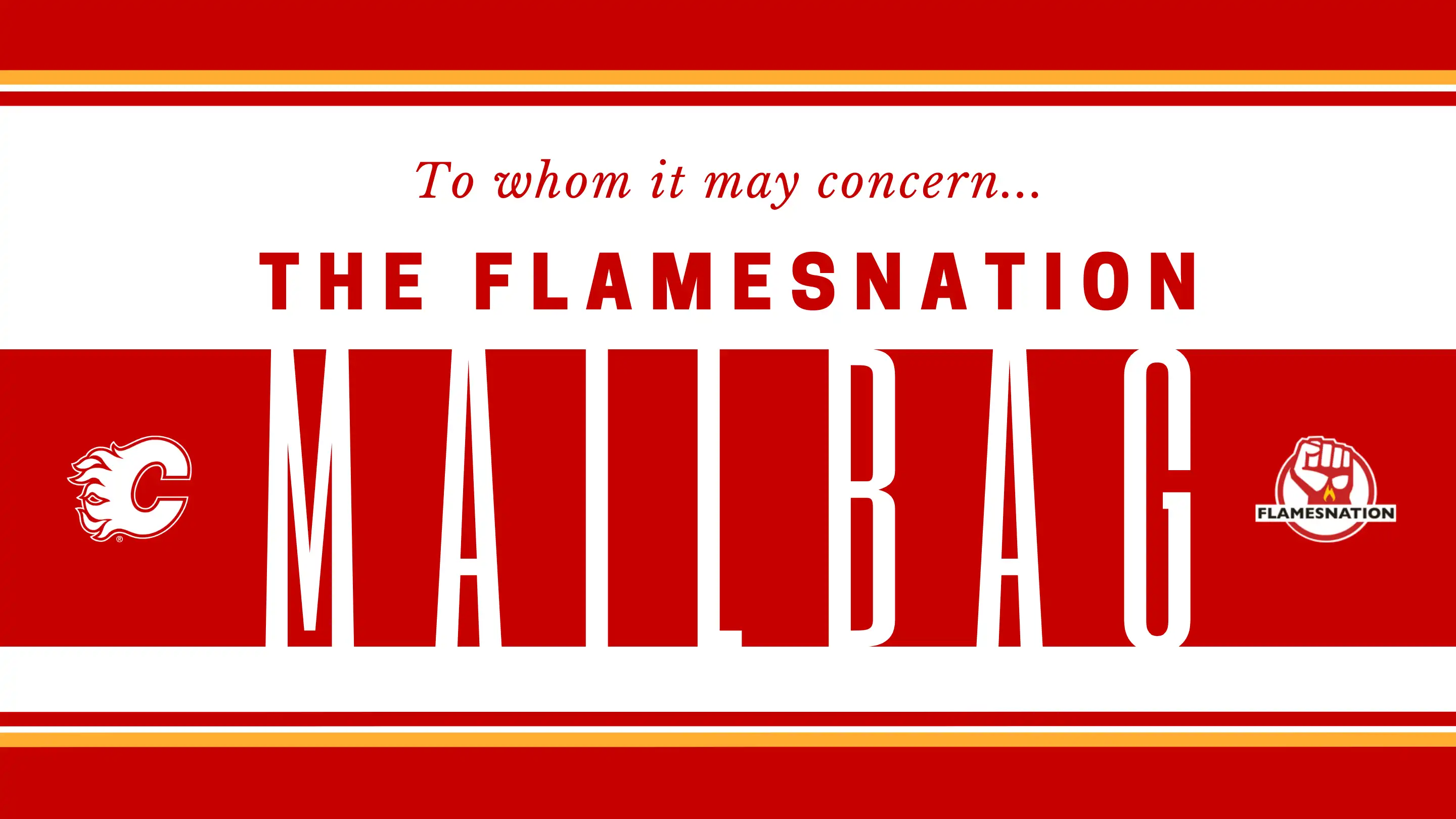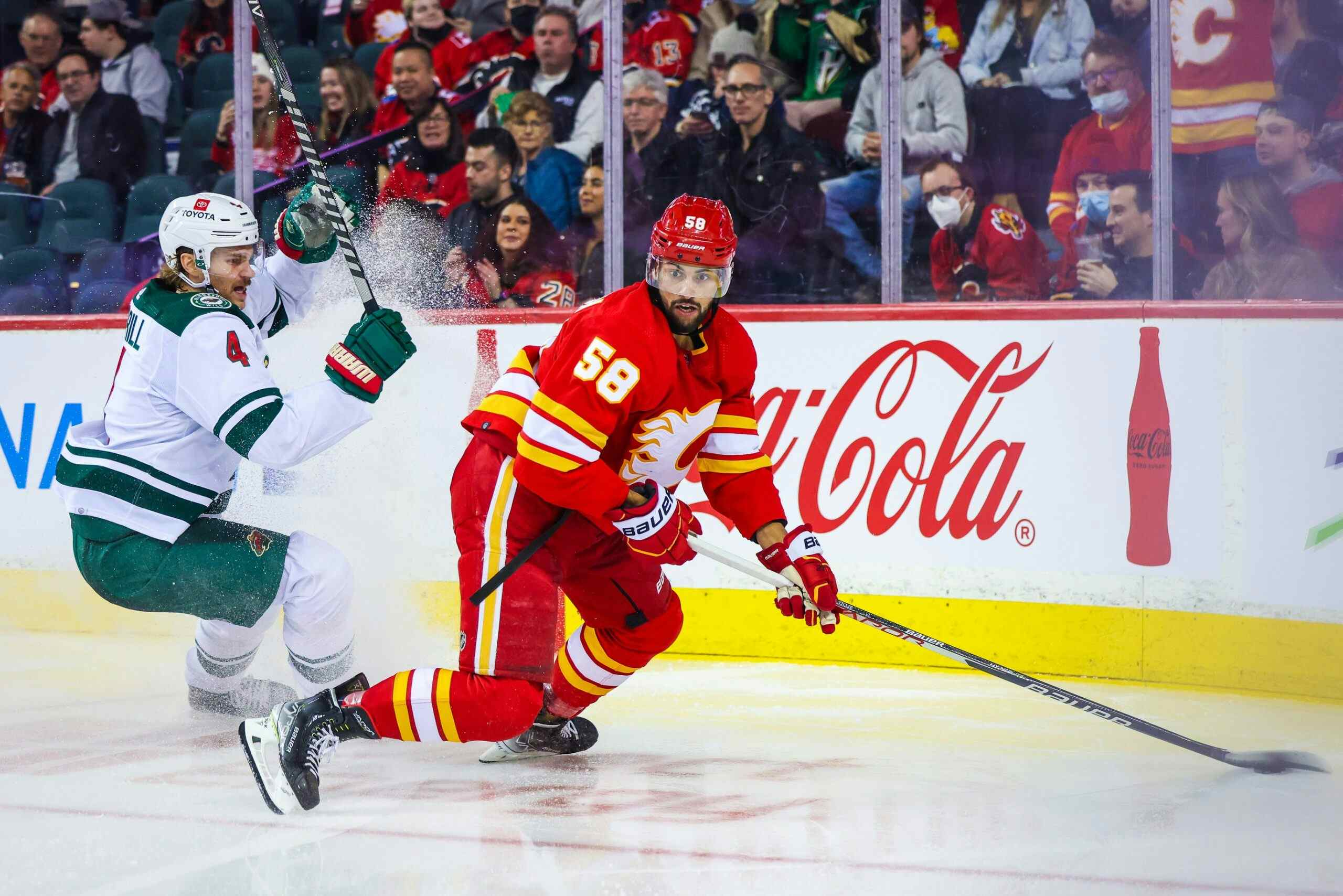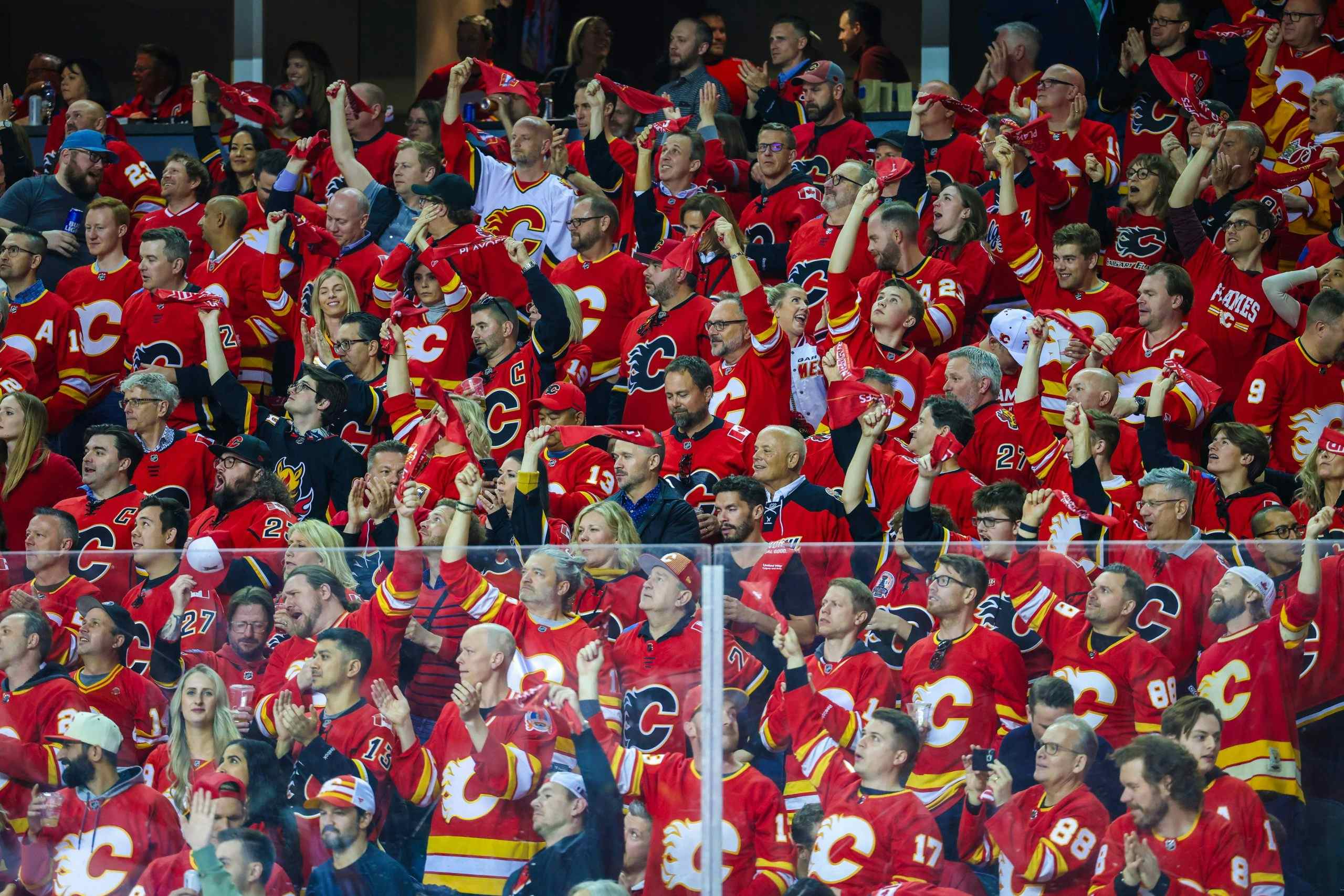Calgary’s postseason demise is simple to understand

Calgary’s first round loss to Colorado is one of the more disappointing finishes I can remember in this city. Sure, expectations were sky high after the best regular season in 30 years, but it goes beyond that. The Flames were a shadow of the team they were en route to nailing down the top seed in the West and it’s not hard to pinpoint why.
Major departure
Calgary won 50 games during the regular season because, well, they were legitimately one of the league’s best teams. The Flames were the league’s fifth-best possession team, allowed the league’s fewest shots per game, and limited scoring chances at an elite level. That all went out the window as soon as the puck dropped in Game 1.
| Regular Season | Playoffs | ||
| CF% | HDCF% | CF% | HDCF% |
| 53.8 | 52.7 | 45.1 | 43.8 |
The Avalanche deserve a ton of credit; they were bought in, dangerous, and consistent all series long. They executed a perfect game plan and 100% deserve to be moving on. From a Calgary perspective, though, it’s hard to wrap your head around how lost they looked for the vast majority of their four straight losses. With all they accomplished on merit during the regular season, you’d think the Flames might have at least mustered a response.
Calgary led the league averaging 28.1 shots against per game over 82 regular season games. In five playoff games, they averaged 41.0, which included a pair of consecutive 50+ debacles in Denver, which was a franchise first. Yes, Colorado deserves a great deal of credit for how they played, but the Flames were totally off-brand, which didn’t allow anything close to an answer.
Disappearing act
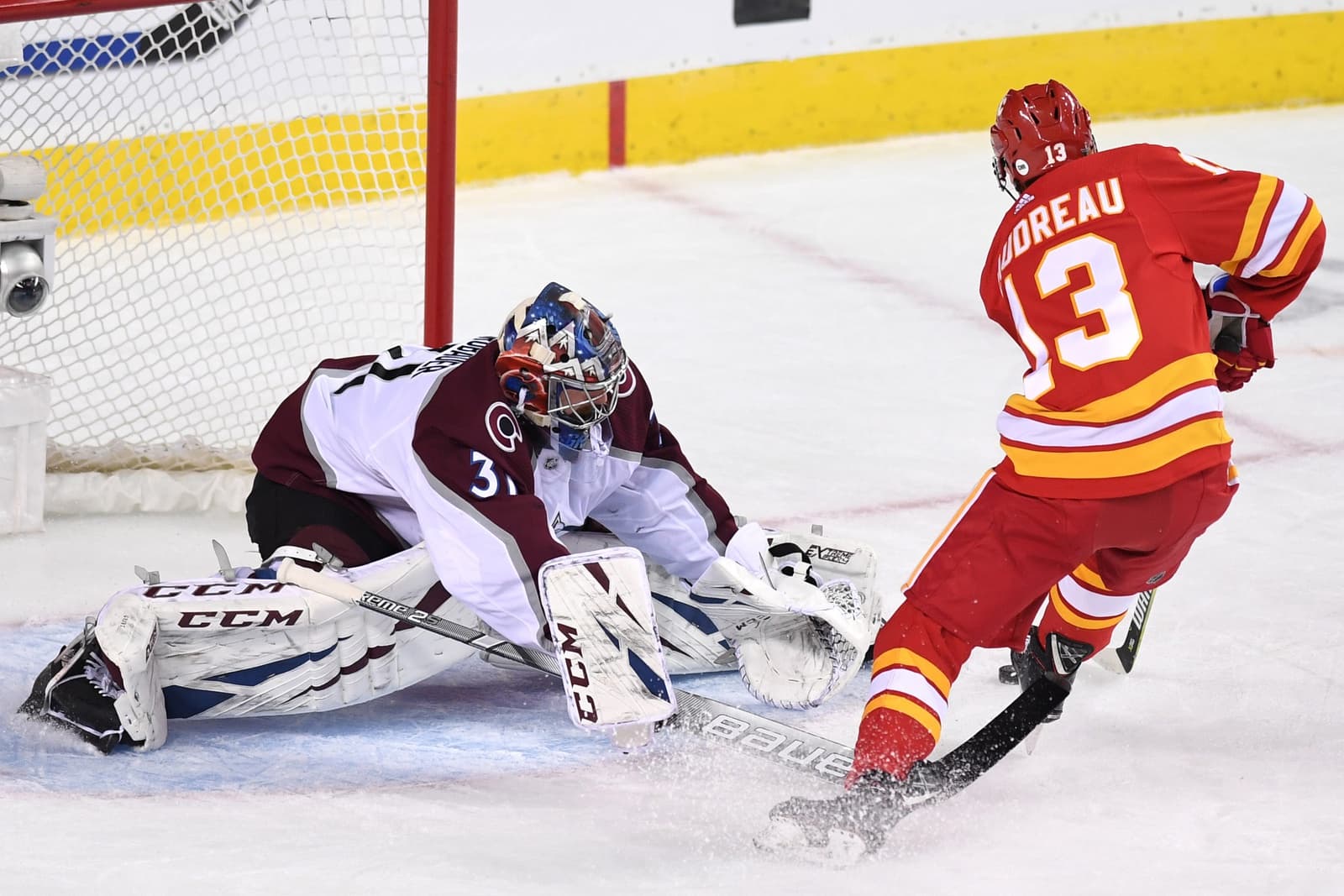
“We just need to play our game,” might have been the most frequent seven words uttered during Calgary’s eight days in the playoffs. Well, it’s hard for a team to play “their game” when their most important players are missing in action. That’s not me using an overused cliche, either.
Bottom line, the Flames got next to nothing from the players they needed the most from. Remember midway through the season when there was a fun debate about whether Calgary or Colorado had the NHL’s most dangerous line? That seems like a million years ago after what we witnessed during five head-to-head showdowns, which included a 4-0 win for the Flames.
| Player | PTS | HDCF% | Player | PTS | HDCF% |
| Sean Monahan | 2 | 40.0 | Mikko Rantanen | 9 | 61.1 |
| Elias Lindholm | 2 | 39.3 | Nathan MacKinnon | 8 | 57.8 |
| Johnny Gaudreau | 1 | 35.5 | Gabriel Landeskog | 4 | 63.6 |
We all know the Avalanche got more from their best forwards, but when you contrast it like above it’s even more stunning. Not only did Calgary’s top trio accomplish little offensively, they hurt the team countless times with their puck management and work defensively. High danger data courtesy Natural Stat Trick.
Monahan’s play was frighteningly bad and I’m almost hoping we find out in the coming days he was playing through a significant injury. Gaudreau was a disaster defensively and allowed frustration to win the day; Colorado had a 20-11 edge in high danger chances at five-on-five when he was on the ice. And, while Lindholm had noticeable moments, he was nowhere near as effective as the team needed him to be.
But the top line wasn’t alone in their “Invisible Man” imitations. Mark Giordano will almost certainly be named a Norris Trophy finalist later today and deserves to be. But as much as it’s uncomfortable to point fingers at the captain, Giordano wasn’t a positive impact maker against the Avalanche. It was the opposite, in fact, as Giordano struggled defensively and had all kinds of issues with Colorado’s speed.
| Regular Season | Playoffs | ||
| CF% | P/60 | CF% | P/60 |
| 57.3 | 1.8 | 45.4 | 0.0 |
Mikael Backlund and Matthew Tkachuk round out the group of top players and neither performed overly well. It’s worrying to see an entire core fall off a cliff and raises crucial offseason questions for general manager Brad Treliving. Was this a one-off? Can this disappointment turn into a positive learning experience? Do these guys have what it takes to perform in the postseason?
A missed opportunity
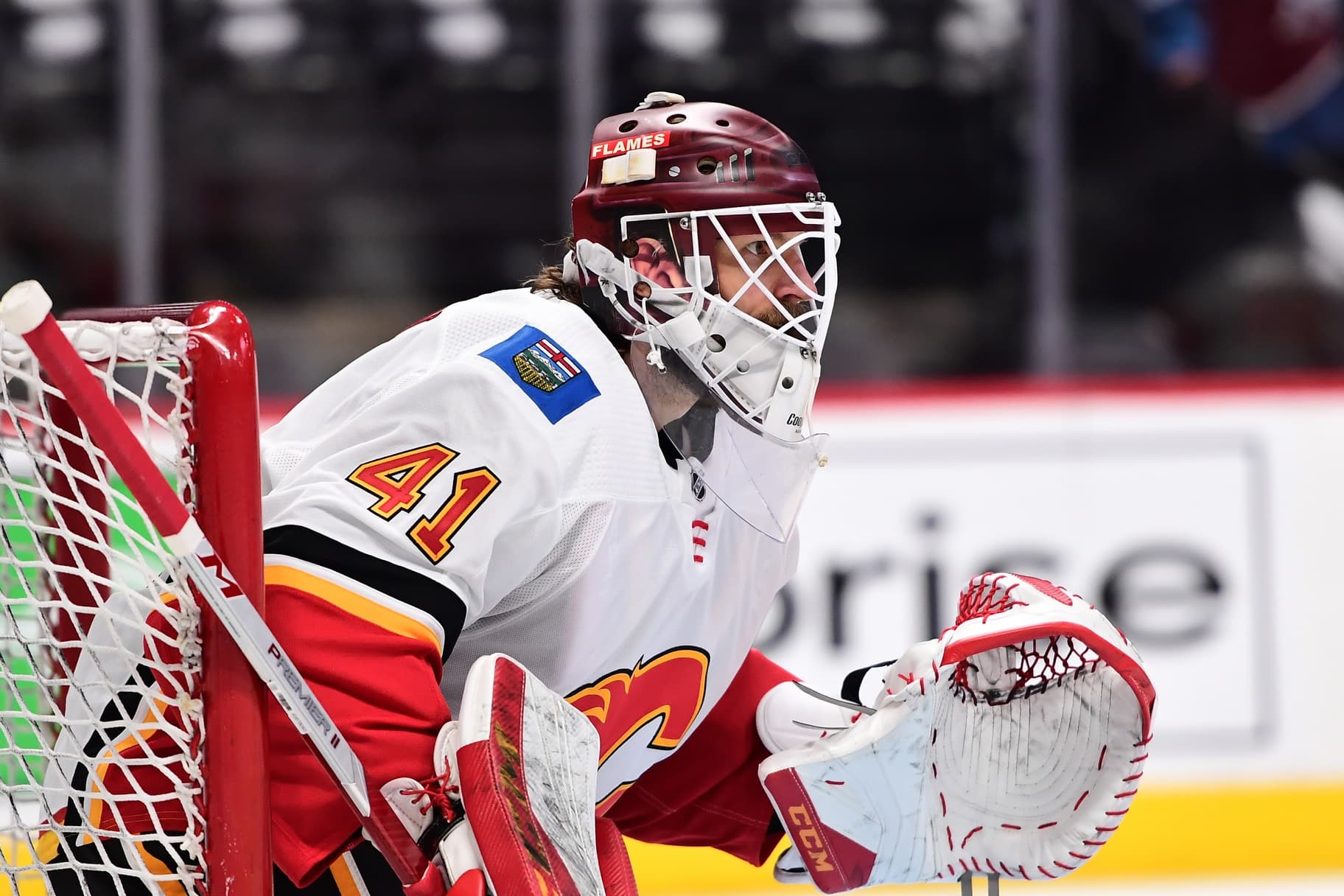
Ron Chenoy-USA TODAY Sports
If you had told me Colorado would be winning this series in five prior to it starting, I would have been certain goaltending would have been a main reason why. That’s not the case at all. In fact, goaltending was the least of Calgary’s concerns thanks to Mike Smith’s heroics. It’s too bad his efforts were wasted.
Smith started all five games and gave the Flames three of the best goaltending performances they’ve gotten in a decade. Smith’s work in Games 1, 2, and 4 were reminiscent of Miikka Kiprusoff keeping an overmatched team afloat against superior opponents like Detroit, Chicago, and San Jose. In the end, Smith’s 0.917 save percentage is the fifth-best playoff performance (minimum five games) since the team moved to Calgary.
| Season | Goalie | GP | SV% |
| 2006-07 | Mikka Kiprusoff | 6 | 0.929 |
| 2003-04 | Mikka Kiprusoff | 26 | 0.928 |
| 2005-06 | Mikka Kiprusoff | 7 | 0.921 |
| 2014-15 | Jonas Hiller | 7 | 0.919 |
| 2018-19 | Mike Smith | 5 | 0.917 |
You can critique Smith for Game 3 or 5 if you want, but that seems fruitless knowing how poorly his team played in front. I thought Smith was stellar and his story is one of the few positives coming out of this playoff loss. Whether you think he earned the Game 1 start or not, he came to play once the postseason puck dropped. It might not be with the Flames, but I think Smith has done enough to earn another NHL contract.
Picking up the pieces
If Calgary had played their best and were beaten by the better team, I feel like this loss would be easier for fans to swallow. Well, they were definitely beat by the better team, but can anyone in that locker room say they’re happy with their effort? I’m not saying this comes from lack of trying or effort, but as hard as they tried, the Flames executed poorly and got their teeth kicked in.
The hope is Calgary’s top players take this feeling and use it if/when they qualify for the 2020 postseason. For the first time in a while, the Flames will enter next season in “talk to me in April” territory, which means a good regular season isn’t going to cut it for most fans. It’s easy to pinpoint why Calgary went out so quickly this year; unfortunately it’s going to take another year to determine if those issues are fixed.
Recent articles from Pat Steinberg

